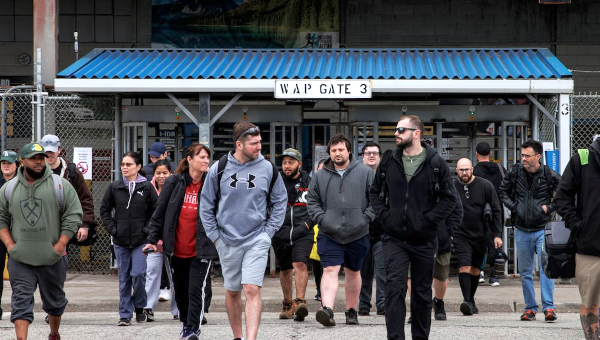Canada’s Countering Foreign Interference Act: Raising the Alarm about Bill C-70
To the members of the Standing Committee on Public Safety and National Security, House of Commons, Parliament of Canada, Ottawa:
We are writing to you today to express our deep concerns with the speed with which Bill C-70, the Countering Foreign Interference Act, is currently being studied by the Standing Committee on Public Safety and National Security. A rushed process for a bill of such scope will undermine the ability to hold a full and meaningful study of the bill, risking the adoption of laws that will violate the Charter-protected rights and freedoms of people in Canada.
We recognize the importance of addressing harassment, threats and violence against people, including when enacted by foreign governments in order to repress the exercise of fundamental rights or engagement in democratic processes.

However, the changes proposed by this legislation go much further. If adopted, this bill will bring extensive changes to Canada’s national security, intelligence and criminal justice systems, in addition to creating a foreign influence registry of considerable, albeit uncertain, scope. As a consequence, this bill will have significant impacts on the lives and fundamental rights of people in Canada, including risks of increased surveillance, diminished privacy, limits on freedom of expression and freedom of association, undermining due process in courts through the use of secret evidence, and racial, religious and political profiling.
Introduced barely a month ago, with the Foreign Interference Inquiry ongoing, the bill is scheduled to fly through committee study within a week. This is faster than even the rushed 2001 study of the first Anti-terrorism Act, which was in committee for a month. The result is that organizations and individuals who would have requested to appear, or would have submitted written briefs, will be unable to on such short timelines. Developing specific amendments to suggest by this Friday’s deadline is nearly impossible.
Rushing the parliamentary process, supported by a state of suspicion and ardent calls to protect national security, can lead to serious, negative and long-lasting consequences. An expedited study also risks missing ways the bill could be improved to better address issues of foreign interference.
We urge you to work with your colleagues in the House of Commons to extend this important study in order to ensure a fulsome debate and discussion of its wide-ranging provisions. •
Signed by:
- Amnesty International Canadian Section (English speaking)
- BC Civil Liberties Association
- British Columbia Gurdwaras Council
- Canadian Association of University Teachers
- Canadian Civil Liberties Association
- Canadian Federation of Students
- Canadian Muslim Lawyers’ Association
- Canadian Muslim Public Affairs Council
- Centre for Free Expression
- International Civil Liberties Monitoring Group
- Ligue des droits et libertés
- National Council of Canadian Muslims
- OpenMedia
- Ontario Gurdwaras Committee
Opposition to Stampeding Bill C-70 Through Parliament Grows
John Price
The International Civil Liberties Monitoring Group, the Canadian Association of University Teachers, the National Council of Canadian Muslims, and the BC Gurdwaras Council are among 14 groups voicing opposition to an attempt to stampede Bill C-70, the Countering Foreign Interference Act, through both houses of Parliament by the end of June.
In a recent public letter [see above], the coalition warned that Bill C-70 “will have significant impacts on the lives and fundamental rights of people in Canada, including risks of increased surveillance, diminished privacy, limits on freedom of expression and freedom of association, undermining due process in courts through the use of secret evidence, and racial, religious and political profiling.”
Few people have even heard of Bill C-70, yet the Liberal government and opposition parties are hoping to ram the bill through with no debate.
Urging the government to extend committee hearings, the joint letter warned: “Rushing the parliamentary process supported by a state of suspicion and ardent calls to protect national security, can lead to serious, negative and long-lasting consequences.”

Anaïs Bussières McNicol of the Canadian Civil Liberties Association stated: “Proposed amendments to the Canadian Security Intelligence Service Act would significantly broaden the ability of the Canadian Security Intelligence Service to collect, analyze and disclose sensitive information to third parties.” She explained that CSIS “could disclose information obtained in the performance of its duties and functions to “any person or entity.”
“This proposed expansion of the Service’s power must be subjected to stricter limits to protect privacy rights,” she cautioned.
Among the controversial provisions are section 20 (1) “Every person commits an offence who, at the direction of, for the benefit of or in association with, a foreign entity or a terrorist group, induces or attempts to induce, by intimidation, threat or violence, any person to do anything or to cause anything to be done (a) that is for the purpose of increasing the capacity of a foreign entity or a terrorist group to harm Canadian interests; or (b) that is reasonably likely to harm Canadian interests.”
Language in the provision, such as being “in association with” or “foreign entity” are so broad they could be easily abused. What might be considered a “foreign entity” is also up for grabs.
The punishment for the above is drastic: “Every person who commits an offence under subsection (1) is guilty of an indictable offence and is liable to imprisonment for life.”
Testifying before the House Standing Committee on Public Safety and National Security last Monday, Tim McSorley of the International Civil Liberties Monitoring Group representative warned that “Bill C-70 also grants CSIS significant new production order and warrant powers. It comes after years of courts admonishing CSIS for misleading them in their warrant applications.”
McSorley urged the committee to take the time necessary to study “this very consequential bill.”
If passed, Bill C-70 will amend the Canadian Security Intelligence Act, the Security of Information Act, the Criminal Code, the Canadian Evidence Act, and introduces a new act, the Foreign Influence Transparency and Accountability Act.
Behind the rush to pass C-70 is an attempt by the Liberal Party to get ahead of the opposition parties on national security issues.
The Liberal government recently announced new research restrictions that severely limit international research collaboration, a move that CAUT Executive Director David Robinson has warned “raises serious concerns about racial profiling, academic freedom, and international scientific collaboration.”
“Academics and students of Chinese origin are already being targeted and that is creating a chill on academic research and partnerships,” he stated.
The 14 signatories of the public letter include Amnesty International Canadian Section (English speaking); BC Civil Liberties Association; British Columbia Gurdwaras Council; Canadian Association of University Teachers; Canadian Civil Liberties Association; Canadian Federation of Students; Canadian Muslim Lawyers’ Association; Canadian Muslim Public Affairs Council; Centre for Free Expression; International Civil Liberties Monitoring Group; Ligue des droits et libertés; National Council of Canadian Muslims; OpenMedia; Ontario Gurdwaras Committee. •
John Price is professor emeritus of history at the University of Victoria and on the advisory board of Canada-China Focus.





